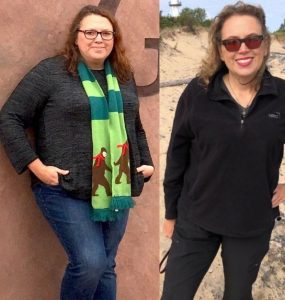From Cornfields to Kickflips: The Skateboarding Boom in Illinois
This post and its photos may contain affiliate links, view our disclosure policy.
Once known primarily for its sprawling cornfields and Midwest charm, Illinois has quietly carved out a name for itself in a more unexpected arena: skateboarding. From Chicago’s gritty street spots to suburban skateparks in towns like Naperville and Rockford, the Prairie State is seeing a surge in skateboard culture like never before.
In the heart of this movement, Chicago skate school programs are helping new skaters build skills and confidence from the ground up. These schools offer structured lessons for beginners while also serving as creative hubs for more experienced riders looking to sharpen their tricks. As demand grows, skateboarding is transforming from a casual pastime into a well-supported sport across Illinois.
A Cultural Shift Rolling In
Skateboarding isn’t just a coastal trend anymore. While California may have birthed the sport, Illinois has embraced it with open arms. Over the last decade, the state’s skateboarding scene has evolved from a niche subculture to a growing movement supported by public officials, local businesses, and enthusiastic communities.
Part of this boom stems from the increased visibility of skateboarding in pop culture and the Olympics. The sport made its debut at the 2020 Tokyo Games, sparking interest across age groups. In Illinois, this visibility has translated into new skateparks, local competitions, and an influx of youth picking up boards instead of video game controllers.
Rise of Skateparks Across the State
Ten years ago, it was tough to find a decent skatepark outside Chicago. Now, cities and small towns alike are investing in skate-friendly spaces. Public funding and grassroots campaigns have led to the construction and renovation of dozens of skateparks throughout Illinois.
Skateparks in places like Springfield, Urbana, and Peoria are drawing crowds from neighboring towns. These modern parks often include bowls, rails, quarter pipes, and even beginner-friendly areas, welcoming skaters of all skill levels. In some places, skating has been formally integrated into city recreation programs, offering lessons and camps for kids and teens during school breaks.
Small Towns, Big Passion
It’s not just the bigger cities pushing skateboarding forward. In smaller towns surrounded by cornfields and silos, young skaters are building their own ramps, DIY skate spots, and forming tight-knit crews. With limited recreational options, skateboarding has become more than a hobby—it’s a lifeline for creativity, expression, and connection.
In towns like Effingham and Carbondale, skaters gather after school in parking lots or abandoned basketball courts. Local businesses have even started sponsoring events, giving out gear or prizes to top performers in impromptu contests. The sense of community is strong, and the growth is organic.
Schools and Parents Are Getting On Board
One of the surprising elements of this boom is the support from schools and families. Where skateboarding was once viewed with skepticism, it’s now seen as a legitimate and positive activity. Teachers and parents are recognizing its benefits—physical exercise, discipline, confidence, and creativity.
Some Illinois schools have even incorporated skateboarding into their PE programs or after-school clubs. To meet the growing interest, Illinois skateboard lessons are now widely available through private instructors in both urban and suburban areas, giving kids a structured way to learn the basics while staying active outdoors.
Diversity in the Scene
Another exciting element of Illinois’ skateboarding boom is its diversity. More girls, young women, and nonbinary individuals are participating, thanks to inclusive skate events and communities. Groups are organizing “skate meetups” that encourage newcomers to try out the sport in a supportive environment.
Chicago, in particular, has become a hub for inclusive skate culture. Events like “Skate Like a Girl” and other women-led sessions are drawing attention and building momentum for a broader, more welcoming skate scene. Skateboarding is becoming a place where everyone feels they belong, regardless of gender, race, or background.
Local Businesses Are Thriving
The rise in skateboarding has also boosted local economies. Skate shops are opening or expanding, and brands are partnering with skaters for merchandise drops and events. In cities like Champaign and Bloomington, local skate shops do more than sell gear—they host community nights, sponsor amateur skaters, and advocate for better skate infrastructure.
Some Illinois-based skate brands are gaining traction on social media, showcasing Midwest street skating and homegrown talent. This digital exposure helps Illinois skaters connect with national and international communities, proving that you don’t have to live in LA or NYC to make a name for yourself on four wheels.
The Future of Skateboarding in Illinois
Looking ahead, the skateboarding boom in Illinois shows no signs of slowing. With continued investment in skateparks, increasing diversity among skaters, and supportive communities, Illinois is becoming a major player in the national skateboarding scene.
There’s also growing interest in competitive skating. Local contests and amateur circuits are stepping stones for young skaters with Olympic dreams. Parents are enrolling their kids in skateboard schools that teach not only tricks but also safety and sportsmanship.
As Illinois continues to embrace skateboarding, it’s clear that the state’s image is shifting. Sure, there are still cornfields stretching for miles—but now, not too far away, you’ll also find smooth concrete, colorful graffiti, and the unmistakable sound of kickflips echoing through the air.
From cornfields to kickflips, Illinois is riding a new wave—one defined by creativity, community, and wheels on pavement. The skateboarding boom is more than just a trend; it’s a transformation of identity, showing that even in the heart of the Midwest, freedom and style can be found one push at a time.








